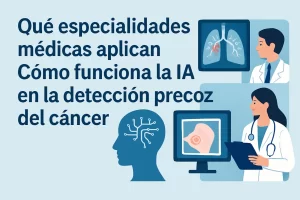Understanding Medical Tests: A Comprehensive Guide
Entendiendo los exámenes médicos: Una guía completa
Los exámenes médicos son procedimientos clave utilizados por los profesionales de la salud para evaluar la salud de una persona. Comprender cómo funcionan y qué esperar de estos exámenes puede ser fundamental para mantener nuestro bienestar.
En esta guía completa, exploraremos diferentes tipos de pruebas médicas y cómo se llevan a cabo. Desde análisis de sangre rutinarios hasta imágenes avanzadas como resonancias magnéticas y tomografías, aprenderemos sobre la importancia de cada prueba y qué información podemos obtener de ellas.
Importancia de los exámenes médicos
Las pruebas médicas nos permiten detectar enfermedades, identificar factores de riesgo y monitorizar la eficacia de los tratamientos. Estas pruebas pueden ser fundamentales para un diagnóstico preciso y una planificación de la atención médica adecuada. Además, nos brindan la oportunidad de prevenir enfermedades al identificar señales tempranas.
En resumen, comprender cómo funcionan los exámenes médicos y su importancia puede ayudarnos a tomar decisiones informadas sobre nuestra salud y bienestar. En las próximas secciones, profundizaremos en los diferentes tipos de pruebas médicas, cómo se realizan y qué información proporcionan.
Top 5 English Medical Tests You Should Know About
When it comes to medical tests, knowledge is power. Understanding the different types of medical tests available can help you make informed decisions about your health and well-being. In this article, we will explore the top 5 English medical tests that you should know about.
1. Blood Tests
Blood tests are one of the most common medical tests ordered by healthcare professionals. They involve taking a sample of your blood and analyzing it to determine various factors such as your red and white blood cell count, cholesterol levels, glucose levels, and much more. Blood tests can provide valuable insight into your overall health and help identify any potential issues.
2. X-Rays
X-rays are a type of imaging test that uses radiation to create detailed images of the inside of your body. They are commonly used to diagnose bone fractures, lung infections, and gastrointestinal issues. X-rays are quick, non-invasive, and provide healthcare professionals with a visual representation of your body’s internal structures.
3. Ultrasound
Ultrasound tests use high-frequency soundwaves to create images of the inside of your body. They are often used to monitor the growth and development of a fetus during pregnancy, as well as to diagnose issues with organs such as the liver, kidneys, and gallbladder. Ultrasound tests are non-invasive and do not involve radiation.
4. EKG/ECG
Electrocardiograms (EKG or ECG) are tests that measure the electrical activity of your heart. They are commonly used to diagnose and monitor heart conditions such as arrhythmias and heart attacks. EKG/ECG tests involve placing a series of electrodes on your chest, arms, and legs to record your heart’s electrical signals.
5. Pap Smear
Pap smears are a type of screening test used to detect precancerous or cancerous cells in the cervix. They involve collecting a sample of cells from the cervix and examining them under a microscope. Pap smears are essential for early detection and prevention of cervical cancer.
Knowing about these top 5 English medical tests can empower you to take control of your health and work with your healthcare provider to make informed decisions. Remember, regular check-ups and screenings are vital for maintaining good health.
The Importance of English Medical Exams: A Look Into Diagnosis and Treatment
In today’s globalized world, the ability to effectively communicate in English has become increasingly important in various professional fields. One such field where English proficiency is crucial is the medical industry.
English medical exams play a significant role in ensuring that healthcare professionals possess the necessary language skills to provide accurate diagnosis and treatment to patients. These exams not only evaluate a healthcare professional’s ability to understand medical terminology and communicate effectively with patients, but they also assess their knowledge of medical procedures and protocols.
With the rise in international travel and the influx of patients from different linguistic backgrounds, medical practitioners must be able to understand and communicate medical information clearly. English medical exams provide a standardized assessment that helps ensure that healthcare professionals can provide quality care to patients, regardless of their native language.
Additionally, English medical exams contribute to the overall safety of the medical industry by verifying the competency of healthcare professionals. Accurate diagnosis and treatment require the ability to understand and interpret complex medical information. Without proper language skills, miscommunication can lead to errors in diagnoses or treatment plans, potentially compromising patient safety.







